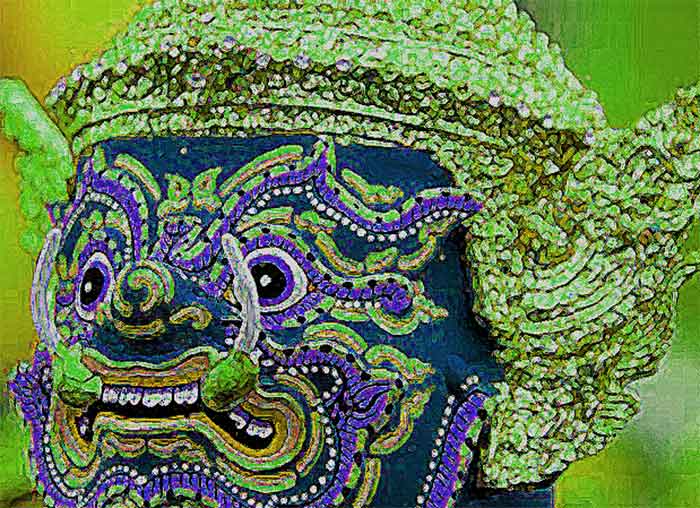
The Difference Between Devas And Asuras, Gods And Demons

Please do not look for complete answers or information in these. They are fragments of thoughts which deal with only certain aspects of the chosen subject
In Hindu cosmology the Asuras (rakshasas) enjoy the same status as the gods and humans. The gods, demons and humans are considered children of Brahma. They all practice the same dharma and worship same the Trimurthis (Trinity), but differently. Brahma provided them with the same knowledge. However, because of difference in understanding, attitude and thinking, each understand the same knowledge in different ways.
Truth is the same for all. Because of the differences in our temperament and thinking, we receive it differently, think differently and interpret differently. Truly speaking, these variations are part of the diversity which is universally present in creation. They arise due to the differences in our karmas and and influence of the guans.
For example, Brahma taught the knowledge of Self to both Vairocana, the leader of the Asuras and Indra, the leader of gods. After listening to Brahma and seeing his own reflection in the water, Vairocana went back with the understanding that the body or the physical form was the self, whereas Indra was not satisfied with that analogy. He stayed back and spent over a hundred years with Brahma to arrive at the truth and know the true meaning of Self.
The story of Indra and Vairocana is mentioned in the Chandogya Upanishad (8:7). It gives us an insight into the psychology of the asuras and the devas. The Asuras go by perceptual and superficial knowledge. Hence, they lack true insight into the nature of things or the nature of reality. Since they go by their senses, they are prone to attachment, delusion and ignorance, and mistake the apparent reality as the highest reality.
The devas operate at the mental and intelligence level. Since they possess a lot of intelligence and analytical ability, they are not easily impressed by the surface reality. Because of their intelligence, which arises from the sattvic nature, they possess a lot of discretion or discerning wisdom, which gives them the ability to know right from wrong. Hence, they can clearly distinguish between reality and illusion. << >>
Suggestions for Further Reading
- What are The Upanishads?
- How old are the Upanishads?
- Exploring the universe the Upanishadic Way
- Which Upanishads One Should Read?
- Who Composed The Upanishads?
- Women in the Upanishads
- Mahavakyas in Your Daily Life
- Sexual Morality in the Upanishads
- Krishna in the Upanishads
- Follow Angirasa as Your Guru as Krishna Did
- How Many Times Do You Reincarnate?
- Are The Upanishads Better Than Modern Psychology?
- Popular Misconceptions About The Upanishads
- Popular Themes of the Upanishads
- The Difference Between Devas And Asuras, Or Between Gods And Demons
- What Brings You Prosperity And Fame?
- Birth and Conception in Hinduism
- The Wisdom of the Upanishads, Main Page
- Essays on The Upanishads
- Upanishads Home Page from Hinduwebsite.com
- Links To Translations of the Upanishads
- List of 108 Upanishads According To The Muktikopanishad
- Introduction to the Upanishads of Hinduism
- A Brief Introduction to the Upanishads
- Essays On Dharma
- Esoteric Mystic Hinduism
- Introduction to Hinduism
- Hindu Way of Life
- Essays On Karma
- Hindu Rites and Rituals
- The Origin of The Sanskrit Language
- Symbolism in Hinduism
- Essays on The Upanishads
- Concepts of Hinduism
- Essays on Atman
- Hindu Festivals
- Spiritual Practice
- Right Living
- Yoga of Sorrow
- Happiness
- Mental Health
- Concepts of Buddhism
- General Essays